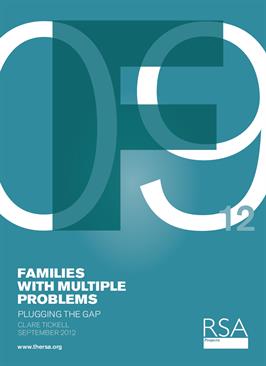The report finds that only early intervention and a whole family approach will help vulnerable families overcome long-standing problems such as bad parenting, drug and alcohol misuse, or poor numeracy and literacy skills.
There is a small but persistent number of families who have not experienced effective parenting themselves, are poorly educated, and may struggle with personal problems including mental health, disability and drug or alcohol misuse. Without effective interventions, these problems can be inter-generational, passed on through families where aspirations and achievements are low.
This report has found that early prevention is the key as it is intuitive and ultimately saves money. These savings can and should be reinvested in communities. They provide a potential resource for building social and community capital, so that citizens are able to take some control over where and how they live, directing and supporting local infrastructures that have resonance and relevance to their lives.
This report recommends the following:
- To learn from the policy shift that has taken place around early years intervention and its importance to social mobility.
- Ensure that there is increased capacity in the communities where these families live, examining carefully the points where targeted and universal services meet.
- Focus, in particular, on the role of children’s centres, which provide a site for both local leadership and a considerable untapped resource for the future.
pdf 618.6 KB
Contributors


Be the first to write a comment
Comments
Please login to post a comment or reply
Don't have an account? Click here to register.